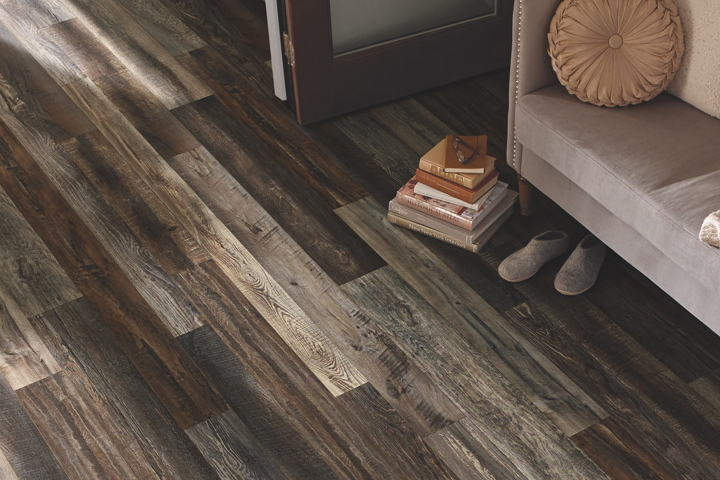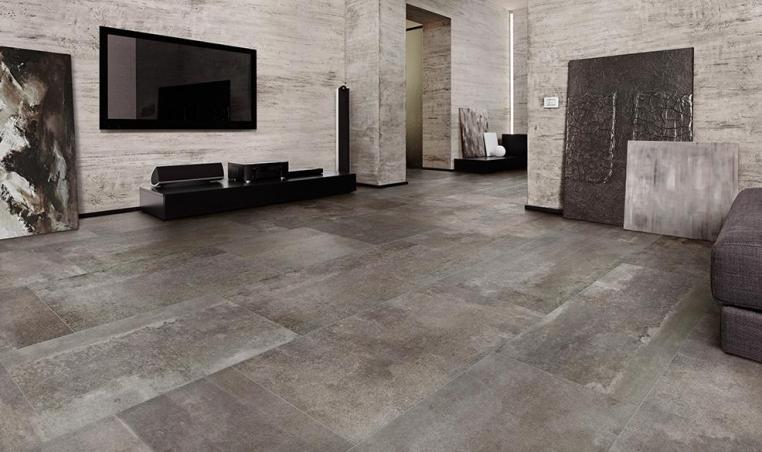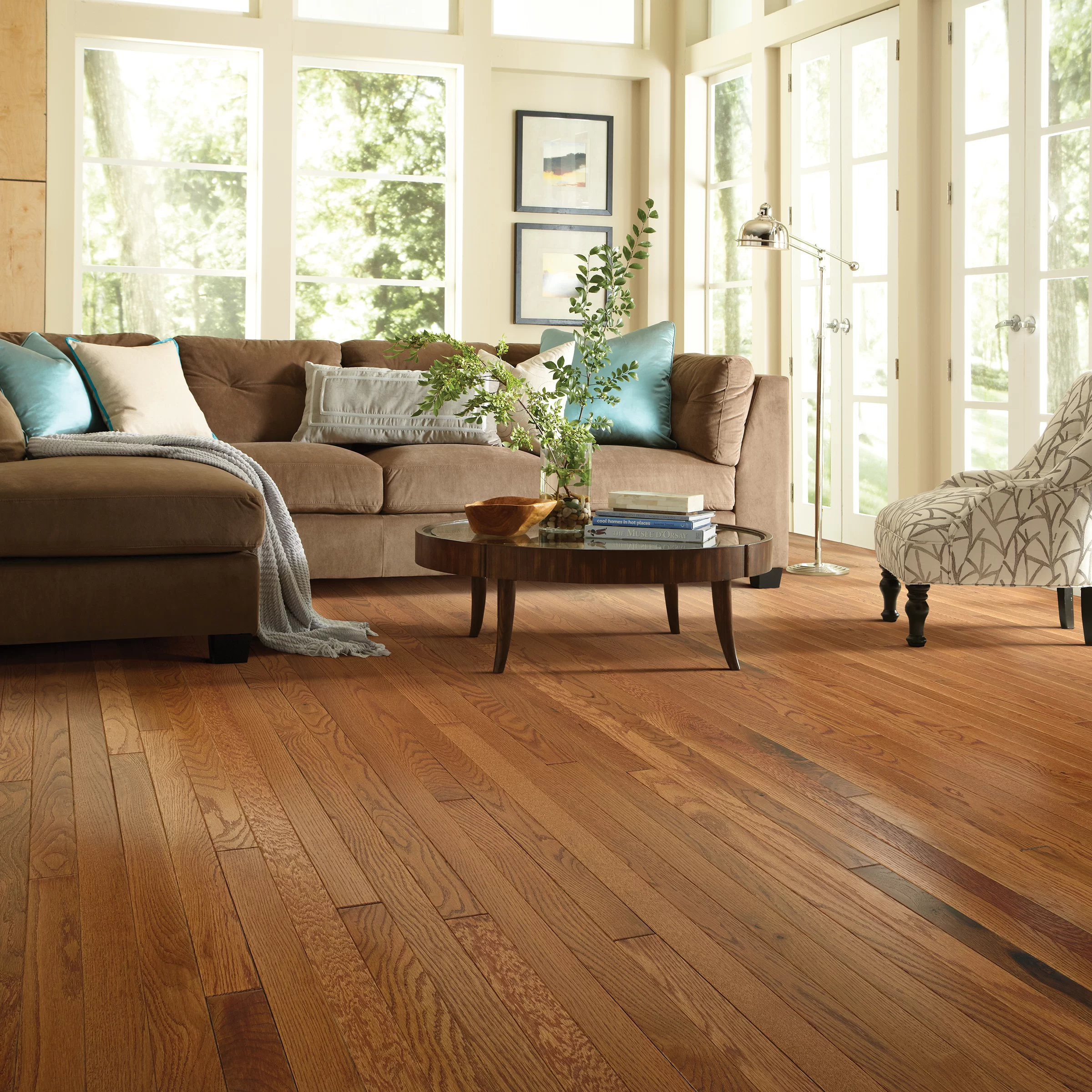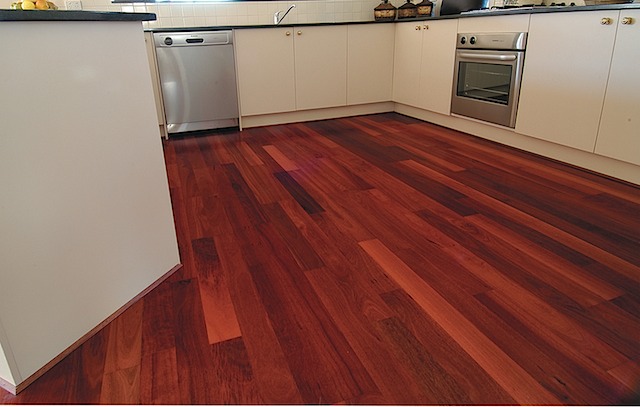
Material and structure: Similar to laminate flooring, vinyl flooring is made of synthetic composite. It usually comes in the shape of sheet, plank, or tile. Basically, there are 4 main types of vinyl flooring: 1- solid, 2- composite, 3- printed, and 4-fiberglass-reinforced.
Finishing texture: The ones in the shape of the tile, usually are made to look like ceramic or stone, and the ones in the shape of planks usually look like wood. Sheet vinyl floors may have different patterns. However, as you walk on them, it feels a little bit softer.
Durability: you can usually expect high-quality vinyl floors to last maximum 20-25 years.
*ATTENTION*: Vinyl planks and tiles cannot be sanded down and refurbished. So, when damaged, the only solution is taking out the damaged tile(s)/plank(s) and replacing them.
Specific advantage: This is pretty easy to maintain and clean vinyl flooring. They are also water and heat resistance. So, not a bad option for Canada’s cold winters! The slight cushion-like feature of vinyl flooring makes it less slippery compared to most of the other types of flooring. These advantages altogether make it a popular choice for commercial buildings like offices, malls, hospitals. Since vinyl flooring is water resistant, it is also a good choice for bathrooms, basements, and kitchen.
Installation: The tricky part is making sure that the sub-floor is completely and perfectly clean, dry, even, and soft. Vinyl sheets and tiles are usually glued over concrete or plywood sub-floor. Vinyl planks usually have tongue-and-groove edges and can be clicked together with no adhesive.
Weaknesses and limitation: This is definitely not an eco-friendly option. First of all, non-easily-renewable natural resources are used for the manufacturing of vinyl flooring. Second, it takes a very long time to decompose back into nature. Last but definitely not least, it releases Volatile Organic Chemicals (VOCs) in the air, which can be toxic. In recent years, many companies have tried to produce eco-friendlier vinyl tiles and planks and they have been successful to some extent.
Cost: Common price range is between 0.7$ to 5$ per sqft.


